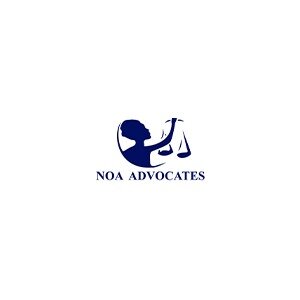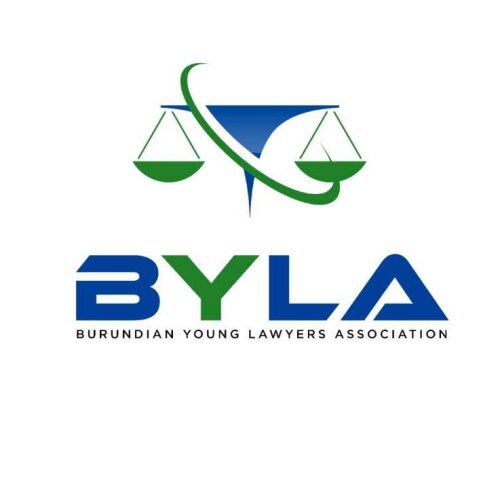Best Government Relations & Lobbying Lawyers in Burundi
Share your needs with us, get contacted by law firms.
Free. Takes 2 min.
Or refine your search by selecting a city:
List of the best lawyers in Burundi
About Government Relations & Lobbying Law in Burundi
Government relations and lobbying in Burundi involve the strategies and practices used to influence government decision-making and policy development. This field is critical for both domestic entities and international organizations that seek to navigate the country's political and regulatory environment. Burundi's government relations framework includes lobbying efforts carried out by an assortment of actors, including corporate entities, non-governmental organizations, and interest groups. Understanding this framework is essential to effectively engage with government representatives and advocate for specific policy changes or initiatives.
Why You May Need a Lawyer
Individuals or organizations may need legal assistance in government relations and lobbying in Burundi for several reasons. Firstly, to ensure compliance with local laws and regulations governing lobbying activities. Legal expertise is invaluable when drafting and interpreting legislation or handling complex negotiations with governmental authorities. Lawyers can also assist in understanding the implications of new or proposed legislation on business or social initiatives. Additionally, legal help may be necessary for navigating potential disputes or legal challenges that arise during lobbying activities.
Local Laws Overview
In Burundi, the legal landscape governing government relations and lobbying is characterized by several important aspects. The country does not have specific legislation solely dedicated to regulating lobbying; however, related activities fall under broader legal frameworks. Transparency and anti-corruption laws play significant roles in governing interactions between government officials and lobbyists. Organizations must maintain compliance with these regulations to avoid legal issues. Additionally, specific sectors may be subject to unique rules that affect lobbying activities, including those pertaining to environmental policy, trade, and foreign investment.
Frequently Asked Questions
What is lobbying in the context of Burundi?
Lobbying in Burundi involves efforts to influence policy-making and decision-making by engaging with government officials. This is done by individuals, advocacy groups, or businesses seeking to promote a particular interest or initiative.
Are there specific laws regulating lobbying in Burundi?
Currently, Burundi does not have a standalone law regulating lobbying activities. However, these activities are governed under broader legal frameworks related to anti-corruption, transparency, and public administration.
Do I need to register as a lobbyist in Burundi?
Since specific lobbying regulations are not established, there is no formal process for registering as a lobbyist. However, ensuring transparent and ethical interactions with government officials is crucial.
What sectors are most influenced by lobbying efforts in Burundi?
Key sectors affected by lobbying in Burundi include agriculture, trade, mining, environmental policy, and telecommunications. Each of these areas involves significant regulation where lobbying can impact policy outcomes.
How can a lawyer assist with government relations in Burundi?
A lawyer can provide strategic advice on complying with legal standards, assist with drafting and interpreting policy documents, and represent clients in negotiations and disputes related to lobbying activities.
What challenges might I face when lobbying in Burundi?
Common challenges include navigating complex regulatory environments, potential anti-corruption scrutiny, and cultural or language barriers when engaging with government officials or local communities.
Can foreign entities lobby the government in Burundi?
Yes, foreign entities can engage in lobbying activities; however, they must adhere to the same compliance and ethical standards expected of domestic entities.
Is there public access to information regarding lobbying activities in Burundi?
Information regarding lobbying activities is not widely accessible to the public due to the absence of specific disclosure requirements. Transparency is often dependent on the party’s adherence to ethical standards.
How does lobbying relate to anti-corruption efforts in Burundi?
Lobbying activities must align with Burundi's anti-corruption laws to avoid illegal influence or bribery. Transparency in interactions and accountability in practices are key to maintaining compliance.
What should I do if I encounter legal issues while lobbying?
If legal issues arise, it is crucial to consult with a legal professional who specializes in government relations to navigate these challenges effectively and mitigate any potential legal risks.
Additional Resources
For additional assistance in government relations and lobbying in Burundi, consider contacting the following resources: - Ministry of Good Governance and Institutional Reforms: This body oversees governance policies and can provide insights into compliance requirements. - Burundi Bar Association: Offering access to legal professionals who specialize in government affairs. - Various non-governmental organizations operating in Burundi can also offer guidance on advocacy and engagement strategies.
Next Steps
If you need legal assistance in government relations and lobbying, begin by consulting with a lawyer who has expertise in Burundian law and policy matters. Schedule a consultation to discuss your specific needs and challenges. It's also advisable to remain informed about any changes in local legislation that may affect lobbying activities. Building a network of reliable contacts within government circles can also be beneficial in navigating this complex field.
Lawzana helps you find the best lawyers and law firms in Burundi through a curated and pre-screened list of qualified legal professionals. Our platform offers rankings and detailed profiles of attorneys and law firms, allowing you to compare based on practice areas, including Government Relations & Lobbying, experience, and client feedback.
Each profile includes a description of the firm's areas of practice, client reviews, team members and partners, year of establishment, spoken languages, office locations, contact information, social media presence, and any published articles or resources. Most firms on our platform speak English and are experienced in both local and international legal matters.
Get a quote from top-rated law firms in Burundi — quickly, securely, and without unnecessary hassle.
Disclaimer:
The information provided on this page is for general informational purposes only and does not constitute legal advice. While we strive to ensure the accuracy and relevance of the content, legal information may change over time, and interpretations of the law can vary. You should always consult with a qualified legal professional for advice specific to your situation.
We disclaim all liability for actions taken or not taken based on the content of this page. If you believe any information is incorrect or outdated, please contact us, and we will review and update it where appropriate.
Browse government relations & lobbying law firms by city in Burundi
Refine your search by selecting a city.











